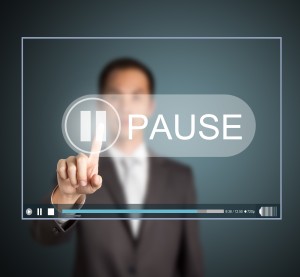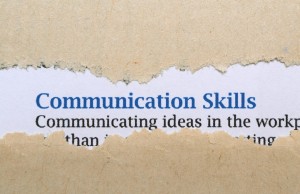Presentation Skills: The Pause – The Silent Moment that Packs a Punch
Presentation Skills: The Pause – The Silent Moment that Packs a Punch
“Pauses can achieve an effect that no combination of words could ever accomplish!” -paraphrased from Mark Twain
You’ve seen master comedians break up a crowd with a well-timed pause. Today’s young comedians study the great– the late Jack Benny, Johnny Carson. The well-timed pause is the tool of smart speakers.
So, where can you pause?
- After introductory phrases or clauses
“Even though the city council meetings went well, (pause) the city administrators and supervisors still feel uneasy.”
- Before conjunctions (but, or, and, because, et cetera)
“We strongly urged them to revise the two year plan (pause), but they didn’t take our advice.”
- When citing a list of items
“We’ll need to call the vendors (pause), review our orders (pause), double-check the fine print of our contracts(pause), refine the timetable (pause), and allow time to make changes.
- When you want to inspire audience attention
Perhaps you wonder if this will affect you. (pause) It will. (pause) Hard. (pause) Right in your bank account.
- When emotions overcome you and you want to regain composure
Senator Edward Kennedy gave a memorial speech at American University in Washington, D.C. three decades after his brother , President John F. Kennedy. He delivered smoothly until he began recalling stories about his late brother. He became emotional, and then stopped talking– a long pause before he could continue.
- When an interruption catches the audience’s attention – or distracts your focus
When surprised by an unexpected interruption, resist looking flustered. Simply pause to give yourself time to harness your thoughts.
Click here: www.cleartalkmastery.com/scheduler to sign up for a Free Sample Lesson with us!
Be sure to watch our English Speech Tips videos and Accent Reduction Tip videos for more English pronunciation and accent reduction exercise.
Presentation skills: Why you should consider using a full manuscript
Presentation skills: Why you should consider using a full manuscript
Why should you do all the work of preparing a full manuscript for your speech? Wouldn’t it be easier to “wing it?”
Here’s one compelling reason: CEOs of top corporations pay freelance speechwriters $3,000-$7,000 and more to write a speech. They wouldn’t repeatedly do this unless they saw substantial gains on their investment.
Truth: a well-written speech manuscript delivers a powerful punch.
Here are important advantages:
- Guaranteed time frame
You don’t need to worry about running over your allotted time. To determine the time for a manuscript speech, do this:
1) Use your computer to get the total number of words.
2) Divide by your rate of speaking. For clear speech, this is likely to be about 100-110 words per minute. For some, it will be 90 to 95 words per minute.
3) Rehearse your speech and get a time so you’re as accurate as possible for the time length.
- Clear and focused message
A manuscript will prevent going off topic or being too wordy, making a stronger impression.
- Get it all
Is there anything worse than realizing after a speech that you forgot to say your most important point?
- Ease of delivery
Having a manuscript is calming. You don’t have to worry about “going blank.”
- Accuracy
Avoided misspoken statistics. Your speech is your first impression. Flubs in statistics give a bad impression.
- Precise, powerful wording
Here’s the inside story of President Ronald Reagan who was praised as “the Great Communicator.” That skill was apparent only when he used carefully scripted manuscripts. Otherwise, he often misspoke.
- Subtle meanings and nuances
Prevents poorly chosen words which make accidental meanings.
- Flexibility
You can add extemporaneous comments. Skilled speakers regularly make last minute comments to add spontaneity.
- Professional appearance
Influential people hire speech writers to gain an advantage in communicating. You can rely on a well-written manuscript to gain that advantage.
- Greater credibility
A manuscript communicates authority. Fact is, the audience knows you did your homework.
- Appropriate humor
Avoid the off-the-cuff jokes that might hurt your career or alienate your audience.
Next time: The Silent Moment that Packs a Punch
Click here: www.cleartalkmastery.com/scheduler to sign up for a Free Sample Lesson with us!
Be sure to watch our English Speech Tips videos and Accent Reduction Tip videos for more English pronunciation and accent reduction exercise.
Presentation skills: Great Tips for Using Notes for a Presentation
Presentation skills: Great Tips for Using Notes for a Presentation
Ah, I was delighted to get this information: Experienced speakers often discipline themselves to write their entire presentation first. Then they work backwards and reduce their manuscript to shortened notes. I loved finding that information because most often that is exactly what I do.
Here is more advice for using notes for a presentation.
You can prepare a formal outline on standard-size copy paper (8 ½ X 11 inches) or put bullet point notes on index cards.
And consider these guidelines:
- Use large typeface (or large print)
- Do wide margins so you can add notes later
- Number each page
- Do not staple. Use a paper clip.
- Underline any important statistics so you can find them at a glance
- Use colored pen or yellow highlighters to emphasize key points
- Draw clear lines across the page to separate the major sections
- Carefully time your presentation. Figure that impromptu remarks will make that time longer!
Next time: Why you should consider using a full manuscript.
Click here: www.cleartalkmastery.com/scheduler to sign up for a Free Sample Lesson with us!
Be sure to watch our English Speech Tips videos and Accent Reduction Tip videos for more English pronunciation and accent reduction exercise.












